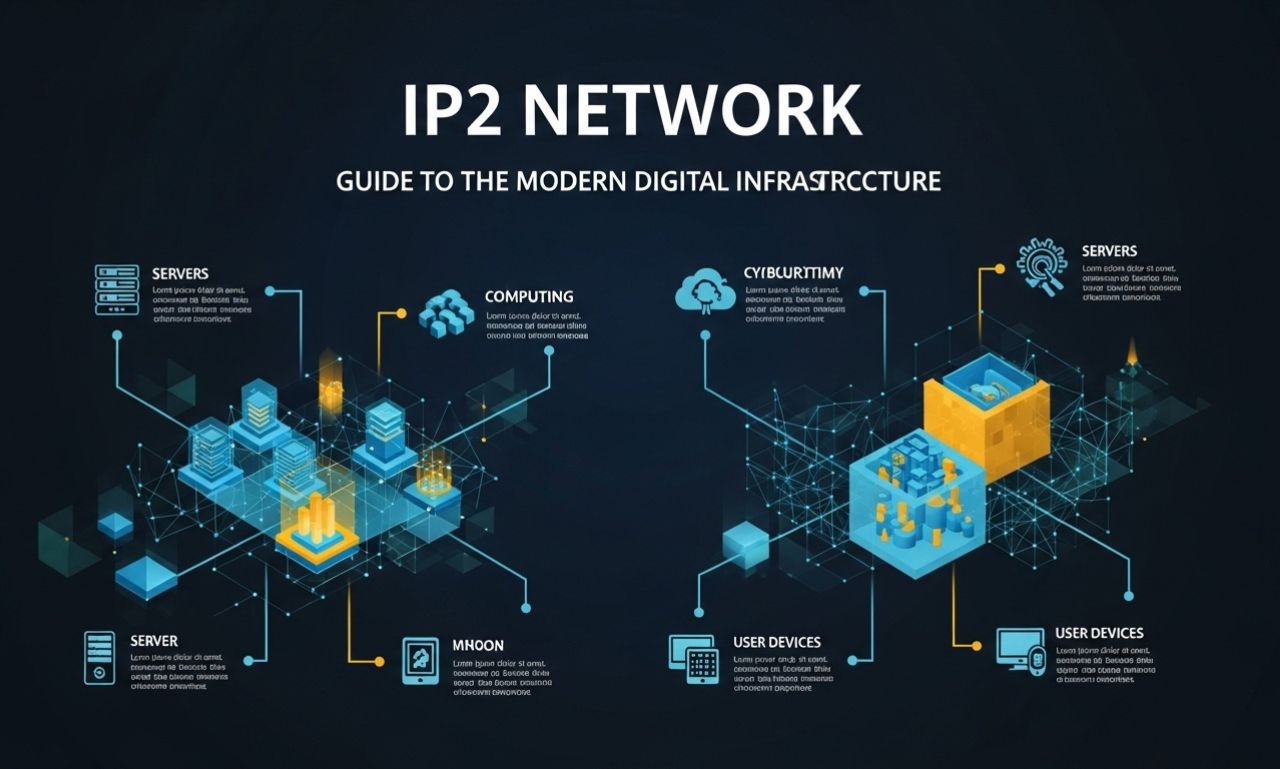The term IP2 Network refers to a modern, evolving digital structure that focuses on secure communication, efficient data routing, and next-generation connectivity. As online systems continue expanding worldwide, the IP2 Network model is becoming increasingly relevant due to its advanced handling of IP communication and user-centric digital principles. It blends the efficiency of improved routing techniques with enhanced security practices, making it attractive for businesses, developers, and tech professionals.
The IP2 Network concept is gaining attention because people, companies, and digital applications now require higher levels of reliability in internet-based systems. Whether for cloud computing, online platforms, cybersecurity frameworks, or remote communication, the IP2Network offers mechanisms that increase speed and overall performance. This makes it an appealing choice for those seeking a strong and modern network foundation.
Understanding the Network
The IP2Network is often described as a layered communication system built on improved IP technology, offering faster routing, better data management, and increased privacy. It serves as a framework for delivering secure connectivity, scalable bandwidth, and modern digital services. In many environments, IP2Network structures are used as the backbone for online platforms, distributed systems, and remote operations.
What sets the IP2Network apart is its adaptability. It is flexible enough to work with cloud environments, IoT ecosystems, and advanced enterprise networks. This adaptability makes it ideal for companies looking to enhance their digital operations without rebuilding entire infrastructures. With technological needs evolving quickly, systems like the IP2Network provide stability and future compatibility.
How the IP2 Network Works
At its core, the IP2Network relies on optimized routing paths, data segmentation, and intelligent traffic distribution. These mechanisms ensure that information travels efficiently across the internet or internal networks, reducing delays and minimizing bottlenecks. The network incorporates enhanced IP management, dynamic path selection, and advanced control protocols to keep data moving smoothly.
Another important component of the IP2Network is its focus on secure communication. Through encryption-based communication channels, identity verification layers, and monitoring systems, it ensures that sensitive information remains protected during transmission. This level of security makes IP2Network ideal for businesses, government systems, and digital services that require secure data handling.
Key Features
One of the major features of the IP2Network is its improved IP routing capability, which allows data to flow through more efficient paths. This leads to faster response times, reduced latency, and better reliability for both individual users and organizations. The system also supports network automation, allowing administrators to optimize resource use without manual intervention.
Another standout feature is the network’s built-in scalability. As online traffic grows, the IP2Network can easily expand its capacity, making it suitable for platforms expecting rapid user growth. This scalability applies to bandwidth, nodes, and communication channels, allowing the network to serve everything from small systems to global-scale applications.
Benefits of Using
The biggest benefit of the IP2Network is its ability to improve overall network performance. Faster routing, stable connectivity, and intelligent traffic handling create a better experience for all users. These advantages are crucial for industries dependent on reliability, such as finance, e-commerce, cloud services, and communication platforms.
The IP2Network also offers strong security advantages. Its layered protection system includes encryption, identity safeguards, threat monitoring, and access control. These features protect the network from unauthorized access and cyber threats. Businesses using the IP2Network benefit from increased data privacy and reduced risk of breaches, making it a highly trusted solution.
IP2 Network in Modern Digital Applications
The IP2Network plays an important role in cloud-based systems. Platforms hosting data centers, SaaS tools, and online applications use IP2 principles to deliver stable, high-performance service. This makes it easier for companies to deploy new software and offer smooth user experiences.
Another area where the IP2Network excels is IoT (Internet of Things). With billions of connected devices operating globally, networks need strong support for real-time communication and secure data transfer. IP2Network structures help ensure these devices function smoothly and safely, preventing overloads and securing device communication.
IP2 Network in Cybersecurity
Cybersecurity is a major focus of the IP2Network, which includes built-in measures to protect data and user identity. Unlike older systems that rely heavily on external security tools, the IP2Network integrates encryption and monitoring directly into the communication layers. This reduces vulnerabilities and strengthens security at every level.
Additionally, the network incorporates smart threat-detection models that identify abnormal patterns in data flow. This means issues such as unauthorized access attempts, malware behavior, or data leaks can be detected early. These security capabilities make IP2Network a preferred model for organizations that handle sensitive information.
Challenges
While the IP2 Network brings numerous advantages, it also faces some challenges. One challenge is the complexity of implementation, especially for older organizations with outdated infrastructures. Migrating to an IP2-based environment requires technical skill and careful planning.
Another challenge relates to the cost of advanced infrastructure. Although the IP2 Network is scalable, setting up its foundational elements may require investment in hardware, software, and technical expertise. However, these costs are often outweighed by the long-term improvements in speed, reliability, and security.
Future of the IP2 Network
The future of IP2 Network technology looks promising as digital transformation accelerates across industries. With growing reliance on cloud computing, remote work solutions, and virtual communication, IP2 Network frameworks are expected to play a central role. Their ability to deliver speed, security, and flexibility aligns perfectly with modern technological needs.
Artificial intelligence and automation are also expected to influence the next stage of IP2 Network evolution. Future systems may automatically predict network failures, optimize routing in real time, and self-heal during disruptions. These advancements will make the IP2 Network even more efficient and reliable, shaping the next generation of global connectivity.

